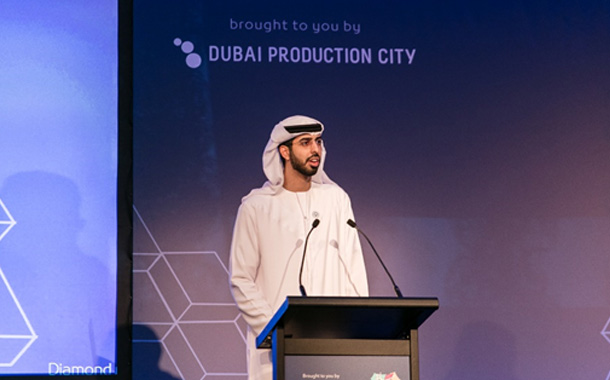His Excellency Omar bin Sultan Al Olama, UAE Minister of State for Artificial Intelligence, predicted that the Artificial Intelligence revolution would have a more profound impact on the media and publishing industry than all other revolutions before it. His comments came as part of his keynote speech on the opening day of the 13th edition of the World Association of Newspapers and News Publishers (WAN-IFRA) Middle East Conference, organised in association with Dubai Production City (DPC).
H.E. Omar bin Sultan Al Olama was a guest of honour at the event that brought together over 300 media experts, publishers, journalists, policymakers, and other stakeholders from around the globe for a series of industry talks and sessions under the theme ‘Roadmaps for Transformation’. Hosting several thought sessions on modern publishing platforms, content and commerce, the event runs until 1 March at The Westin Dubai Mina Seyahi Beach Resort & Marina and aims to provide publishing executives with an exceptional opportunity to discover the latest in regional and global industry trends and best practices.
Pointing out that AI was prompting hopes and fears within the industry, His Excellency Al Olama said: “I do not come bearing good news or bad news, I just want to share a few facts and perspectives about change. We are at a crossroads today, some feel hope and some fear of being made obsolete. We must understand that change is important for the future.” His Excellency highlighted the publishing industry’s adaptability, and its shifting relationship with the reader in the face of three separate revolutions: the invention of the printing press, the computer age and the internet revolution.
He said: “Readers have always read, but with the internet and social media, the delivery of news has changed and the relationship with readers has also undergone a sea change thanks to Snapchat, Periscope and other apps. But AI will have a bigger and more profound change than all three of the earlier revolutions. Through automation and AI, news will always be customised and optimised for individual readers.”
The Minister said that innovators in media are already collaborating with tech companies to find ways that smart machines can help in data processing and other automated tasks, which will streamline the newsroom workflow.
He said: “Some people may view this change with fear, fear for the future. But I see great potential in this development. If we get rid of the repetitive, automated tasks that take up our time, we can then focus on the creativity for which our species is known. Humans can leverage technology for progress and for a better future.
“There will be an increase in human creativity. Everyone will be augmented the same way as today we all have our mobile phones. Today we have access to so much information and can connect with any person, anywhere in the world at any moment, with the simple touch of a button.
Today’s landscape will be seen as primitive compared to where we can be. There are positive and negative possibilities, but if all the key stakeholders come onboard, then we can have the future that we can only imagine.”















